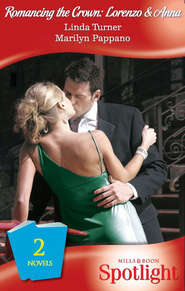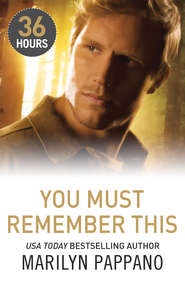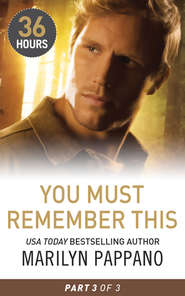По всем вопросам обращайтесь на: info@litportal.ru
(©) 2003-2025.
✖
Copper Lake Secrets
Автор
Год написания книги
2018
Настройки чтения
Размер шрифта
Высота строк
Поля
Finally, the meal was over and Grandmother, taking her tea along, led the way into her study. It was the brightest, airiest room in the house, but it was stifling in its own way. The furniture was uncomfortable, and Grandmother didn’t relax her rules there. A settee that didn’t invite sitting, spine properly straight, chin up, ankles crossed and Grandmother with her own rigid posture didn’t invite confidences or intimacy.
Grandmother had apparently exhausted her store of chitchat and went straight to the point. “All these years, all those invitations you turned down or ignored, and suddenly you show up without so much as a call. What changed your mind?”
She could claim tender feelings, but Grandmother wouldn’t believe her. Reece had always tried to love her; weren’t grandmothers supposed to be important in a girl’s life? But loving someone who constantly criticized and lectured and admonished … Fearing Grandfather had been easy. Feeling anything for Grandmother hadn’t.
Reece gave a simple, truthful answer. “Curiosity.”
“Curiosity killed the cat.”
How many times had she heard that? And Mark, always out of the adults’ earshot, creeping up beside her, his mouth near her ear. Meow.
“You look well,” Reece said evenly.
“I am well. Your grandfather, however, is dead. Your mother came for his service. Your aunt Lorna came, and Mark and his family were there. Several hundred people were there, in fact, but not his one and only granddaughter.”
The desire to squirm rippled through Reece, but she controlled it. Howard women met every situation with poise and confidence. “I couldn’t come.”
“You mean you wouldn’t.”
“It’s not as if we were close.”
“And whose fault is that?”
His. He never said a nice word to me. He yelled at me. He scared me. He threatened—
Reece stiffened. Threatened? She didn’t recall Grandfather ever actually threatening her, not with tattling or spanking or anything. Was that part of what she couldn’t remember? Part of why she couldn’t remember?
“It was my fault,” Reece said. She would take all the blame Grandmother could dish out if it helped her get a few answers. “That summer I lived here, I was frightened of him. He wasn’t exactly warm and cuddly.”
To her surprise, Grandmother nodded. “No, he wasn’t. But he was a good man.”
Maybe in the overall scheme of things. Reece couldn’t deny that Mark had adored him. Maybe Grandfather hadn’t known how to relate to girls. Maybe he’d never forgiven his older son for leaving and transferred that resentment to her. Maybe asking him to deal with his son’s death and a grieving thirteen-year-old girl at the same time was too much. She did look an awful lot like her father.
“That summer,” she hesitantly began.
“What about it?”
What happened? Why do I still have nightmares? Why can’t I remember? The questions seemed so reasonable to her, but she’d lived with them for fifteen years. Would they sound half so reasonable to Grandmother, who hadn’t been much better at dealing with a grieving thirteen-year-old than her husband?
“I’ve been thinking a lot about that summer lately,” Reece said, watching Grandmother closely for any reaction.
She showed none. “It was a difficult time for everyone. Losing your father that way … Your uncle Cecil passed four years ago. A mother’s not supposed to outlive both her children.”
The last words were heavy, as if she felt every one of her seventy-eight years, and sparked both sympathy and regret in Reece. She couldn’t imagine losing a child … or having a loving grandmother. If things had been different, if Daddy hadn’t moved to Colorado, if Reece had had a chance to know both her grandparents before Daddy’s death, would that summer have had such an impact on her?
But Daddy had had issues of his own with Grandfather, so their visits had been few. They’d been practically strangers when she and Valerie had come to stay.
And there was no wishing for a new past. It was done, and all that was left was living with the consequences.
“I’m sorry about Cecil,” Reece said, meaning it even though she hadn’t met the man more than twice that she could recall.
Grandmother’s unusual sentimentality evaporated. “He ate too much, drank too much and considered riding around a golf course in a cart exercise. It was no great shock that his heart gave out on him. His doctor had been warning him for years about his blood pressure and cholesterol, but he wouldn’t listen. He thought he would live forever.” Her sharp gaze fixed on Reece. “How long are you planning to stay?”
“I don’t know. A few days.” No longer than she had to. “If that’s all right with you,” she added belatedly.
“Of course it’s all right. Fair Winds has always been known for its hospitality. I already told your cousin Mark that you’re here, so he’ll be by to say hello.”
Reece swallowed hard. “He lives around here?” That was one thing she hadn’t considered. Much as she wanted answers, she wasn’t sure she wanted to face her childhood enemy to get them.
“In town. He moved here after college. He and Macy—she’s from a good Charleston family—they have one daughter and another on the way. He runs the family business and checks in on me every day.”
Reece smiled weakly. “Wonderful.”
Grandfather’s dead. I’m not thirteen. I can handle this.
If she repeated it often enough, maybe she would start to believe it.
Jones stopped at the grocery store to get the five major food groups—milk, cereal, bread, eggs and chips—before going to the motel to pick up his clothes and Mick. When he let himself into the room, the dog was stretched out on the bed, the pillow under his head, the blanket snuggled around him. He lifted his head, stretched, then rolled onto his back for a scratch, and Jones obliged him, grumbling all the time.
“You are the laziest animal I’ve ever seen. You eat and sleep all day, then snore all night. You’ve got it made.”
Mick just looked at him, supreme satisfaction in his big brown eyes.
“We’ll be bunking in a new place for a while. There will be room for you to run as long as you stay out of Miss Willa’s way. She doesn’t strike me as a dog-friendly person.” Jones considered it a moment. “She’s not a particularly people-friendly person, either. But we’ve dealt with worse.”
And there was the consolation prize of her granddaughter, whose own eyes were as brown as Mick’s but way less happy and a damn sight less trusting. He didn’t think it was just him, either. She didn’t seem the type to warm up to anyone quickly, if at all.
That was okay. Pretty as she was, all Jones wanted from her was information. She was still a Howard, still a part of Glen’s disappearance, and he was still the kid who’d been taught wariness and distrust of country people—anyone outside of his people, regardless of where they lived—from birth.
But she was awfully pretty, and she did have that vulnerable-damsel thing going on that neither he nor Glen had ever been able to resist.
But he would resist now.
After loading his bags and Mick into the truck, Jones slid behind the wheel and left the motel, turning west on Carolina Avenue. Catching a red light at the first intersection, he drummed his fingers on the steering wheel until, beside him, Mick whined. Jones glanced at the dog, an admonishment on his tongue, then forgot it as his gaze settled on a man in the parking lot twenty-five feet away.
He was about Jones’s age, an inch or two taller, maybe thirty pounds heavier, and he wore a light gray suit so obviously well made that even Mick would recognize its quality. He was talking to a young woman, a briefcase in one hand, keys in the other, and he stood next to a Jaguar. He was fifteen years older, a whole lot softer and a hell of a lot better dressed, but Jones would have recognized him anywhere.
A horn sounded, and Jones’s gaze flicked to the traffic light, now green, then back at Mark Howard. The sound drew his attention, and he looked at Jones, their gazes connecting for an instant before Howard dismissed him and turned back to his conversation.
Hands tight on the wheel, Jones eased the gas pedal down, resisting the urge to turn the corner, pull into the lot, grab Howard by the lapels of his custom-tailored suit and demand the truth about Glen. There would be a time and a place to talk to the man, but this was neither.
By the time he’d turned north on River Road, a bit of the tension had seeped out. He liked Copper Lake. It was the quintessential small Southern town, war memorials in the square and the parks, beautifully restored antebellum homes. The people were friendly and happy to answer questions. No one had treated him with suspicion … though so far he hadn’t asked any questions that sounded suspicious. He hadn’t brought up the subject of Glen’s disappearance or the discovery of his belongings or his gut instinct that the Howard family was responsible. If he started asking that sort of question, they were likely to close ranks and protect their own.
Mick sat straighter in the seat when Jones turned off the highway onto Howard property. Shutting off the AC, Jones rolled the windows down, and the mutt immediately stuck his head out to sniff the air. When they drove through the gate, though, Mick drew it back in, let out a long, low whine and moved to the floorboard to curl up.
“Baby,” Jones accused, but Mick just laid his head on his paws. The dog knew the place was unsettled. Reece knew it. How the hell could Miss Willa not know, or if she did, how could she continue to live there?
The road continued past the cottage, leading to the other buildings. Jones drove past the small house, then pulled onto ground covered with a heavy layer of pine needles. The spot would block the view of his truck from any casual visitors to the house—maybe not a bad thing once Miss Willa’s grandson and others found out she was planning to spend a ton of money on their grand project.











